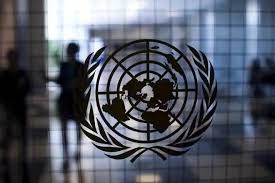UNITED NATIONS, Feb 17: India has strongly backed Iraq’s request for the UN observation of parliamentary elections in the country in October, saying it endorses any process that respects the Gulf nation’s sovereignty and strengthens the democratic exercise.
India’s Permanent Representative to the UN Ambassador T S Tirumurti, speaking at the UN Security Council Briefing on ‘The Situation in Iraq’ on Tuesday, said that the parliamentary elections in Iraq in October 2021 will be a “valuable” opportunity to strengthen the roots of democracy in the country.
“A transparent, free, fair and inclusive election, conducted in a violence-free environment with high voter turnout, will empower the new government to implement reforms, improve accountability, meet the genuine aspirations of Iraqi people, especially the women and youth, and promote inclusiveness and reconciliation,” he said.
Tirumurti said that international assistance to the Independent High Electoral Commission of Iraq and UN observation of the electoral process would enhance the credibility of these elections and build confidence about the integrity of the results amongst the Iraqi people.
“In this regard, India fully supports the government of Iraq’s request for UN observation of the upcoming elections in the country. We will support any process which respects Iraq’s sovereignty, strengthens the democratic exercise, and makes it credible, and consequently acceptable to the people of Iraq,” he said, adding that in line with its own strong democratic traditions, India has contributed to the democratic and electoral processes in Iraq by training Independent High Electoral Commission officials and sending election observers.
The Secretary-General’s Special Representative for Iraq and head of United Nations Assistance Mission for Iraq Jeanine Hennis-Plasschaert told the Council that for credible elections to take place in Iraq, it is imperative that parties and candidates operate in a free and safe environment.
She called on all parties, stakeholders and authorities to come together, to agree on a ‘code of conduct’ and to allow all Iraqi candidates to operate freely — irrespective of ethnicity, gender, language, religion, belief or background.
Hennis-Plasschaert pointed out that a request from the Iraqi government for electoral observation is currently before the Security Council.
“As I address this Council, I also would like to underline that, no matter what your response is, the elections will be Iraqi-led and Iraqi-owned at all times. And I sincerely hope that all of Iraq’s political leadership truly takes this to heart. Equally important, yet not always fully understood: the UN does not take sides. Our independence and impartiality define us,” she said.
Tirumurti noted the “positive” progress in preparation for the upcoming elections and said the passage of the electoral law and allocation of funds to the Independent High Electoral Commission are significant steps.
He said it is important that the remaining conditions for smooth elections like completion of biometric voter registration and agreement on the Federal Supreme Court’s membership are also fulfilled in a timely manner.
As Tirumurti expressed condolences for those killed in the January 21 terrorist attacks in Baghdad, he said the international community must continue its support for Iraqi Security Forces and the government so that they can credibly address the menace of terrorism and provide an environment free of terror and fear.
Referring to the report of the Analytical Support and Sanctions Monitoring Team of the 1267 Committee, which said that majority of the active 10,000 ISIS fighters in the region are in Iraq, Tirumurti voiced concern over the situation and said focus of the Security Council should be to eliminate every threat posed by the ISIS and other terror groups in Iraq and elsewhere in the world.
He said the continued attacks on diplomatic establishments and convoys, including the one in Erbil by non-state armed groups are a “serious challenge” in maintaining the fragile peace that prevails in Iraq.
While appreciating efforts by the government to provide protection to all diplomatic missions, Tirumurti expressed hope that a long-term solution can be found to this issue.
Further, India commended concerted efforts of the Iraqi government and the Kurdistan Regional Government to resolve all outstanding issues, and encouraged both sides to continue the “constructive dialogue for a mutually satisfactory long-term sustainable agreement on these issues, including on revenue sharing and budget allocations.”
Applauding the Iraqi government’s determined efforts to maintain friendly and cordial ties with its neighbours and other regional countries, the Indian envoy emphasised that the stability of Iraq should be of paramount importance to the region.
“The country should not become a theatre for regional or global conflicts,” he said, reaffirming India’s steadfast support for Iraq’s sovereignty, independence and territorial integrity.
Tirumurti told the Council that India is the preferred destination for medical treatment for many Iraqi friends and this cooperation has continued during the COVID-19 pandemic.
Under the ‘Air Bubble Arrangement’ between the countries, over 10,000 Iraqi nationals have travelled to India during the last four months alone for medical treatment. (PTI)
Trending Now
E-Paper


